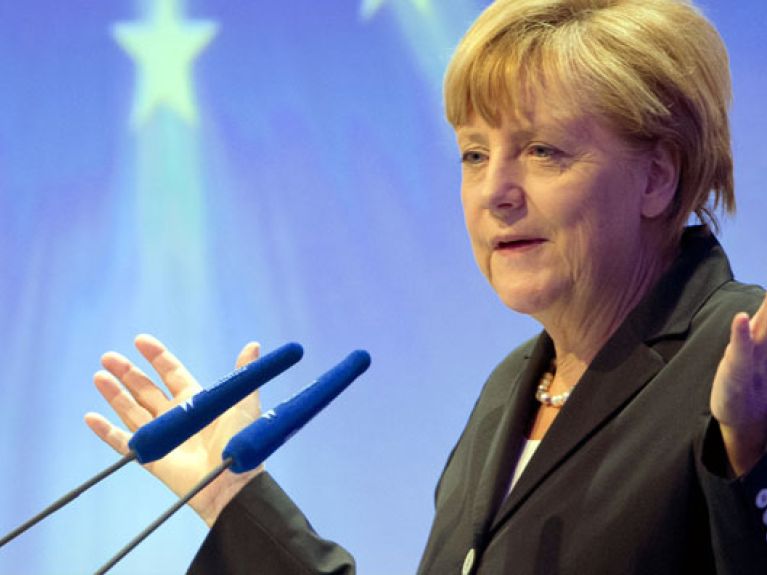Angela Merkel turns 60
Germany’s Federal Chancellor Angela Merkel celebrates her 60th birthday – in her own way.

Angela Merkel remains true to herself. The Chancellor will not be celebrating her 60th birthday on 17 July with a dazzling party. Rather, German’s first female head of government has organized a forum for a renowned scientist. The Konstanz-based historian Jürgen Osterhammel, winner of the Leibniz Prize and the Sigmund Freud Prize, will hold a lecture at the Konrad Adenauer House on the subject of “Pasts: the Time Horizons of History”. This is fully in line with Frau Merkel’s personality; she not only has a PhD in physics, she herself prefers first to analyse a situation and then take prudent action.
The astonishing career of the pastor’s daughter from East Germany
Who is this woman? What has influenced her? Frau Merkel was born in Hamburg in 1954 as Angela Dorothea Kasner. Her family moved to the GDR (East Germany), where the pastor’s daughter grew up with a certain distance to the communist regime. At school she was an excellent pupil, and later studied physics in Leipzig. “The natural sciences were my thing, partly because the GDR leadership couldn’t interfere much in the laws of nature,” the Chancellor writes about her life. After a brief marriage with a fellow student, she keeps the surname Merkel. She works at the Central Institute for Physical Chemistry of the Academy of Sciences in Berlin and is awarded her PhD there in 1986. At this time she meets the renowned scientist Joachim Sauer and marries him in 1998.
Her political life begins in 1989 with the fall of the Berlin Wall. After the peaceful revolution in the autumn of 1989, Angela Merkel becomes an active member of a citizens’ movement called Demokratischer Aufbruch (Democratic Renewal), which merges with the CDU in 1990. “The new freedom and the many new opportunities awakened curiosity in me and the desire to be actively involved in shaping the changes,” says Merkel in her autobiographical notes. After the first free elections in the GDR in 1990, scientist Merkel is appointed deputy government spokesperson. In the following year she rises through the CDU party ranks and works in the cabinet of the now united Germany – first as Federal Minister for Women and Youth, then as Federal Minister for the Environment, Nature Conservation and Nuclear Safety. Angela Merkel is elected Federal Chancellor the first time in 2005. Her tenth year in office coincides with a year that commemorates several epoch-making events of the 20th century. In this way Angela Merkel’s choice of speaker on her birthday fits not only her personal preferences, but also a historical consciousness: Jürgen Osterhammel, as an expert on global history, likes to broadens his audience’s view, enabling them to see points in common that transcend borders.
Chancellor Angela Merkel’s 60th birthday on 17 July 2014

